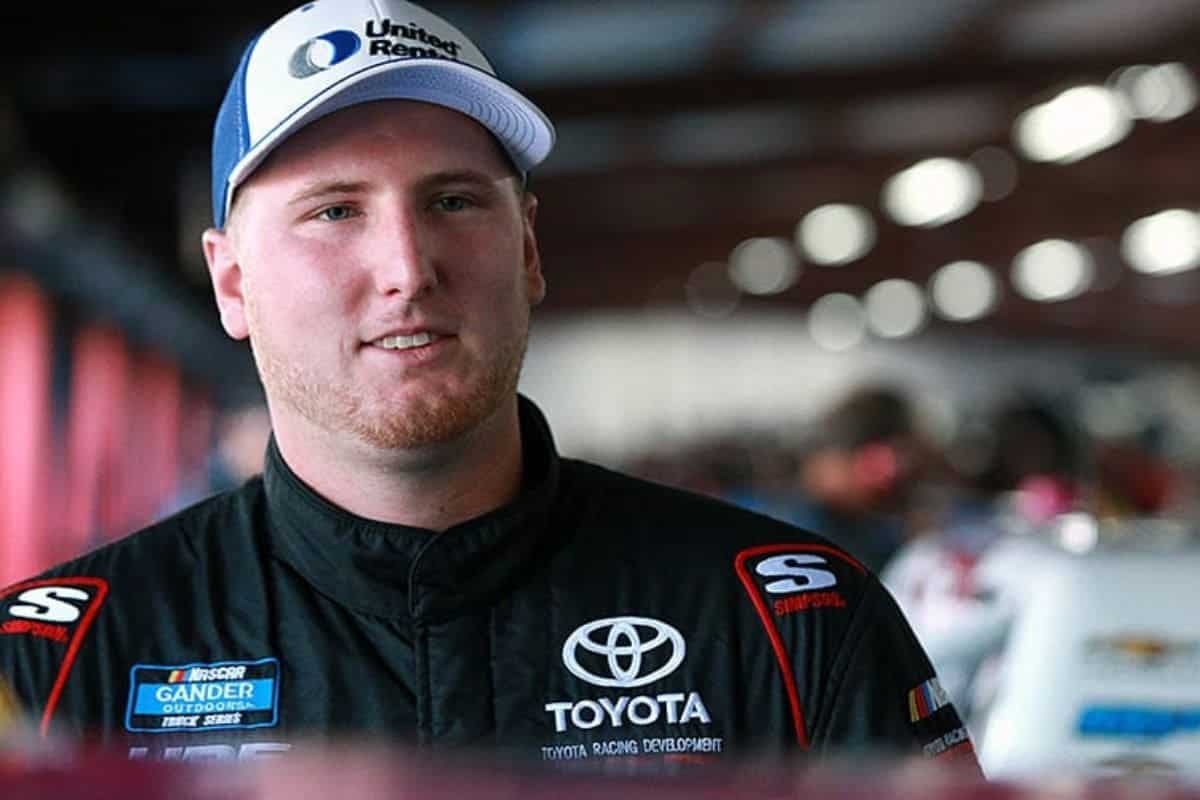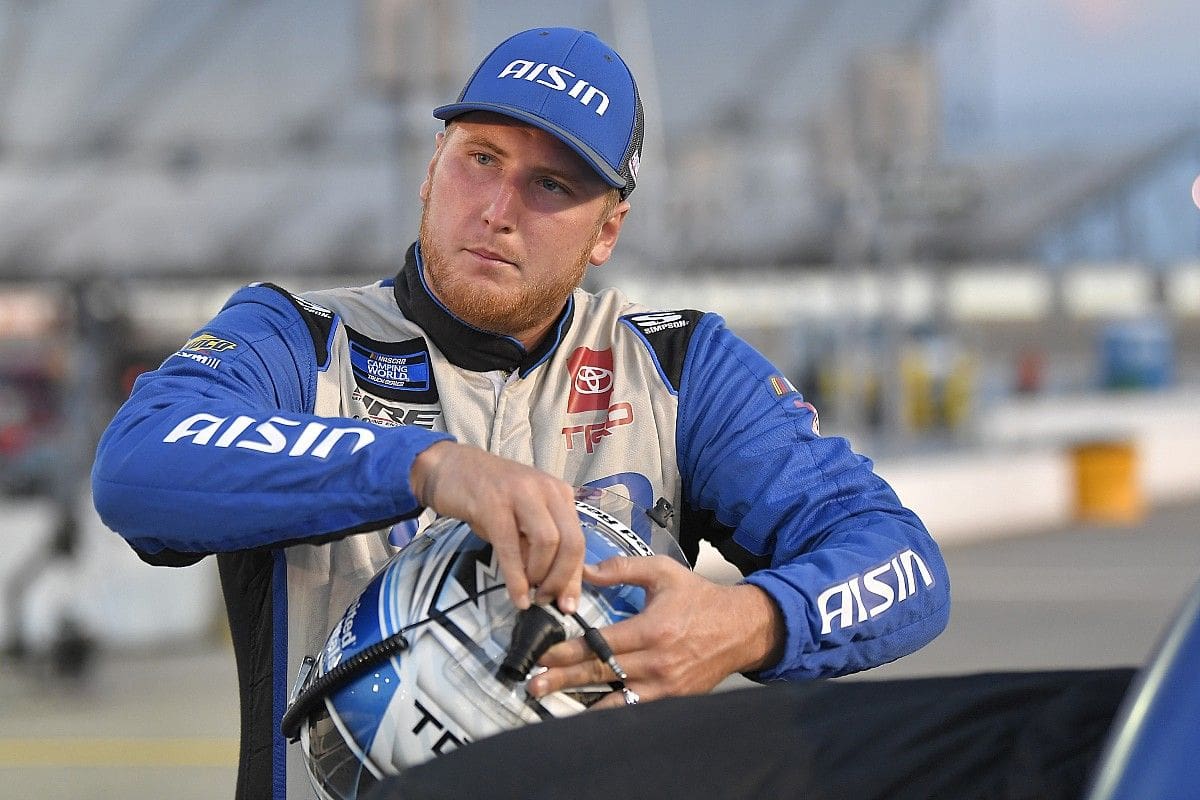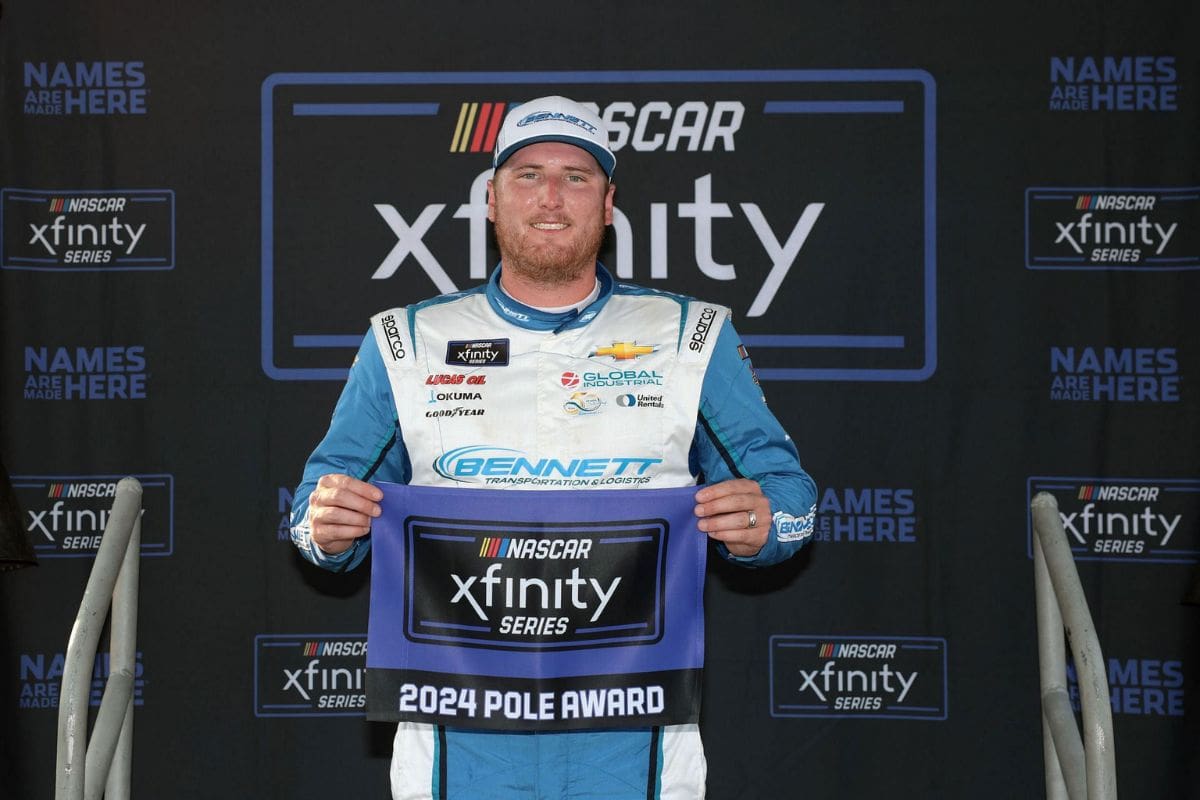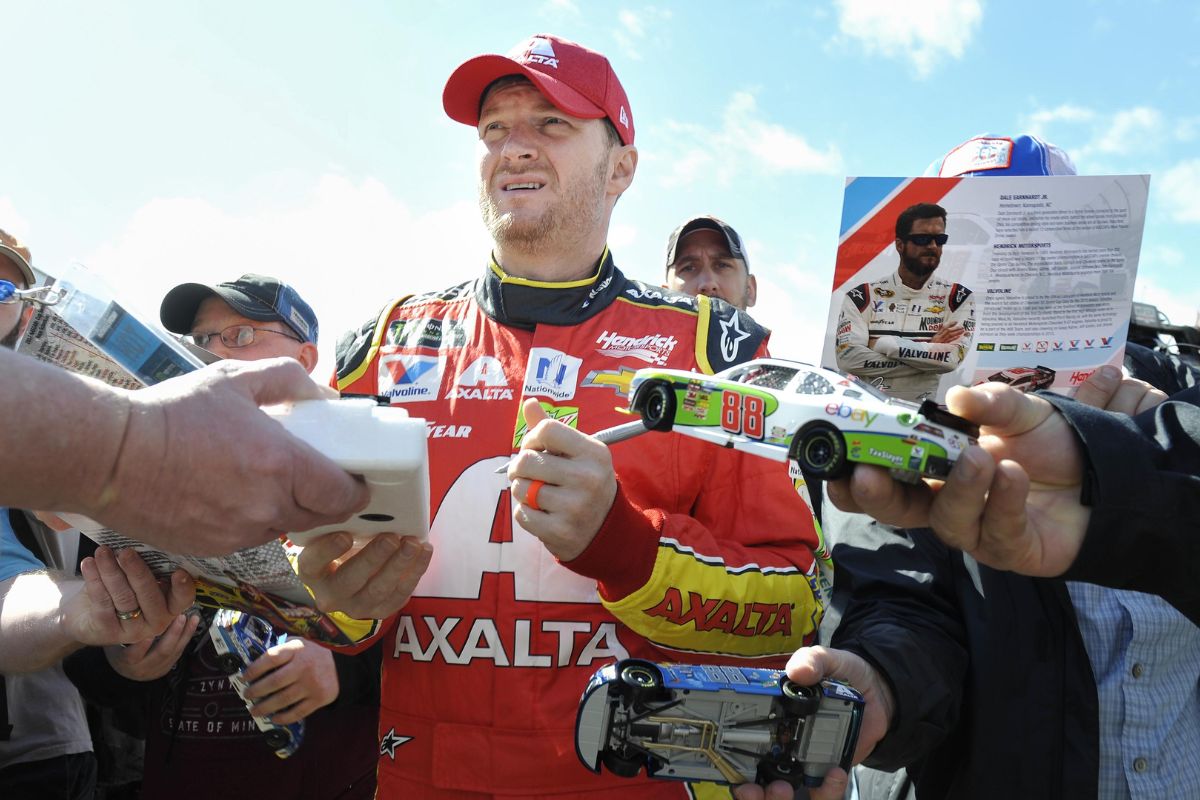NASCAR Accused of Robbing Dale Jr’s Rising Star: The recent Dover race has cast a contentious shadow over NASCAR, following an incident where Austin Hill’s untimely spin brought out a caution, costing Dale Earnhardt Jr.’s protégé, Carson Kvapil, a clear path to victory. This event has not only ignited a firestorm among fans but also intensified scrutiny on NASCAR’s decision-making process and the implications of potential favoritism. Critics argue that such incidents challenge the sport’s credibility and call into question the consistency of rule enforcement.
Key Takeaways
- NASCAR faced accusations of manipulating race outcomes, impacting Carson Kvapil performance at Dover.
- Fans expressed dissatisfaction with the caution decision during Hill’s spin, questioning its necessity.
- The incident led to calls for greater transparency in NASCAR’s decision-making processes.
- The debate centered around the integrity of the competition and the fairness of NASCAR’s regulatory practices.
Austin Hill’s Incident at Dover
At Dover, Austin Hill’s promising season faced a setback as he finished a disappointing 15th, a significant deviation from his recent string of high performances. Prior to this event, Hill had been consistently notching up top-ten and even top-5 finishes, showcasing a level of competitiveness and skill that had many earmarking him as a serious contender for the championship. The sudden drop in his performance at Dover, hence, demands a nuanced analysis.
Delving into the specifics of the race, it becomes apparent that several factors contributed to Hill’s underwhelming finish. Initially, the inherently challenging nature of the Dover International Speedway, often referred to as the ‘Monster Mile,’ cannot be understated. Its high-banked, one-mile concrete oval is notorious for its physical and mental demands on drivers. Additionally, the track conditions on race day, characterized by higher than usual tire wear and tricky aerodynamics, played a significant role.
Furthermore, Hill’s race strategy seemed to falter in adapting to these demanding conditions. Observations suggest a possible misjudgment in tire strategy and pit stop timing, which are essential on a track like Dover where even minor errors can lead to significant time losses. The team’s approach to these tactical aspects of the race might not have been as finely tuned as needed, given the particular challenges posed by the speedway.

Hill’s Role in Carson Kvapil’s Missed Victory
Austin Hill’s controversial navigating in the closing laps at Dover International Speedway have sparked intense debate over their impact on Carson Kvapil’s near-victory. As the laps dwindled, the strategic interplay and vehicular ballet on the track escalated into a high-stakes drama, with Hill’s actions at the center. Observers and analysts suggest that Hill’s aggressive driving, particularly in the pivotal final circuits, directly interfered with Kvapil’s racing line, ultimately costing him the win.
This incident not only robbed Kvapil of a potential maiden victory but also raised questions about the underlying sportsmanship and racecraft standards expected at NASCAR’s top level. Kvapil, a promising talent under Dale Earnhardt Jr.’s tutelage, was maneuvering the track with precision and leading with confidence before the contentious episode.
Critically, the timing and nature of Hill’s driving — particularly his choice of lines and his spatial awareness in proximity to Kvapil — hinted at a calculated risk. Yet, the fine line between strategic brilliance and unsportsmanlike conduct became a topic of heated discourse.
Hill Confesses His Role
In a candid admission, Hill acknowledged his loss of traction during the final restart, which inadvertently triggered a caution and compromised Kvapil’s lead. This disclosure came amid intense scrutiny and controversy surrounding the race’s outcome, as many believed Kvapil was on the verge of a career-defining victory.
“I’m more frustrated with myself on the restart before the last one. I lost the lead to the #18 (Sheldon Creed) and then #88 (Carson Kvapil) got by, he had a really good run off of (turn) 4 and got clear and then I had a really big run on him off of (turn) 4 and the caution came out unfortunately.”
“When we restarted there on the bottom, I got a pretty good jump and I just kind of committed to ‘I’m not lifting until I get pretty late in the corner’. It just didn’t work. This one’s just on me, on not getting the job done, getting loose underneath the guy.”-hill
- Tire Grip Issues: Prior to the final restart, Hill noticed a gradual decline in tire performance, which he initially believed manageable until the race intensified.
- Pressure from Competitors: During the restart, Hill found himself sandwiched between faster cars, increasing the necessity for aggressive maneuvering, which ultimately exceeded the fading grip of his tires.
- Immediate Aftermath: The spin not only brought out the caution but also disrupted the pacing and strategic positioning of several leading drivers, including Kvapil, whose momentum was critically halted.
Austin Hill took the blame for letting a potential win slip/spin away. pic.twitter.com/GaHJWoo4Nd
— Bob Pockrass (@bobpockrass) April 27, 2024

NASCAR Fans React
Following Hill’s controversial spin at Dover, a wave of dissatisfaction emerged among NASCAR fans, who voiced strong concerns over the decision to issue a caution that many argued was unnecessary and detrimental to the race’s competitive integrity. They scrutinized the context of the spin, the speed at which Hill recovered, and the immediate issuance of the caution, suggesting a disparity between this incident and other similar on-track occurrences.
“Austin Hill ruining good things. What else is new lol”
“Only if NASCAR didn’t throw a caution for Austin Hill saving it on the apron, Carson had that won.”-fans reaction
The critical discourse extended beyond the mechanics of the caution decision. Fans delved into the broader implications of such decisions on the sport’s ethos. Many articulated a growing apprehension that NASCAR’s credibility could be undermined by decisions perceived as inconsistent or overly discretionary. This fear was underscored by a deep-seated respect among the fanbase for what many view as the ‘pure racing’ elements of NASCAR – a contest unfettered by seemingly arbitrary interventions.
“I would like to personally thank Austin Hill for being an absolute dumba** and costing Kvapil the win. Great job bud!”
“Really wanted to see Kvapil win at the end but I feel like one of the last caution they called when Austin Hill got spun they could have kept it green and Kvapil would of won I feel like. #nascarfan #nascarxfinityseries 🟣⚪⚫ …idk just a thought 🧐”-fan reaction
The situation was examined from different angles, with fans using replays, live footage, and the rulebook as points of reference to underpin their arguments.
Debate Among Fans
The controversy at Dover ignited a fervent debate among NASCAR enthusiasts, centering on whether the caution for Hill’s spin was judiciously issued or disrupted the natural outcome of the race. On one hand, the decision to call a caution is seen as a necessary measure for safety and fairness; on the other, it’s viewed as an interference that may have altered the competitive balance in the closing laps.
- Safety vs. Competition: Some fans argue that NASCAR’s priority should always lean towards safety. The caution following Hill’s spin is defended as a precautionary measure to prevent further incidents on the track, potentially safeguarding the drivers and the integrity of the race. However, critics suggest that this particular caution was unnecessary, as Hill was able to clear the track without further incident, implying that the race could have continued without intervention.
- Impact on Race Outcome: There is a significant faction of the fanbase that believes the caution fundamentally altered the dynamics of the race. They argue that certain drivers, including Kvapil, were particularly disadvantaged, which sparked allegations of favoritism and manipulation. This group feels that the natural flow and potential outcomes of the race were compromised, leading to a less authentic resolution.
- Consistency in Rule Application: Critics also question the consistency with which NASCAR applies its rules regarding cautions. The sporadic nature of these decisions leads to suspicions and allegations of bias, undermining trust in the regulatory body. Fans demand more transparency and consistency in the decision-making process to preserve the sport’s integrity.

News in Brief: NASCAR Accused of Robbing Dale Jr’s Rising Star
The incident at Dover involving Austin Hill and its impact on Carson Kvapil’s potential victory has ignited significant controversy among NASCAR enthusiasts. Accusations of favoritism and manipulation within NASCAR’s decision-making underscore the necessity for improved transparency and rigor in the enforcement of regulations.
This situation exemplifies the critical need for NASCAR to uphold its integrity through consistent rule application, ensuring that competitive fairness is maintained, thereby preserving the sport’s credibility and the trust of its fanbase.
Our Reader’s Queries
Q: Does Dale Jr. still own JR Motorsports?
A: The team is headquartered in Mooresville, North Carolina, and is co-owned by former NASCAR Cup Series driver Dale Earnhardt Jr., his sister Kelley Earnhardt Miller, Kelley’s husband and former racer L.W. Miller, and Rick Hendrick, the owner of Earnhardt Jr.’s former Cup Series team.
Q: Who inherited Dale Earnhardt’s money?
A: Following his passing, numerous stories emerged detailing Earnhardt’s philanthropic endeavors and his generosity towards those in need. Despite amassing wealth through racing, the Earnhardt name was seldom linked with greed. However, perceptions shifted upon Teresa inheriting his fortune.
Q: What did Dale Earnhardt Jr. do?
A: Dale Earnhardt Jr.’s NASCAR journey was marked by highs and lows in terms of victories. While he secured 26 wins in NASCAR Cup Series races, he fell short of his championship aspirations. Nonetheless, his affable personality, charm, driving flair, and esteemed family legacy rendered him immensely popular within the sport.
Also Read: NASCAR Veterans Roast Nemechek: Brutal Dale Jr Comparison


